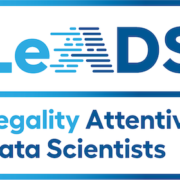Data Privacy in the Financial and Industrial Sectors
Nowadays, one of the most important issues for enterprises across the financial services industry is privacy and data protection. Records and in particular financial records are considered sensitive for most of the consumers and good data handling practices are promoted by the respective regulators targeting for increased customer profiling in order to identify any potential opportunities and make a risk management analysis. To this extend, the management of data privacy and data protection is of great importance throughout the customer cycle. For example, there are several use cases in the finance sector that involve sharing of data across different organizations (e.g., sharing of customer data for customer protection or faster KYC, sharing of businesses’ data for improved credit risk assessment, sharing of customer insurance data for faster claims management and more).
To facilitate such cases, several EU funded projects have already discussed the need to reconsider data usage and regulation in order to unlock the value of data while fostering consumer trust and protecting fundamental rights. Permissioned blockchain infrastructure is utilized in order to provide privacy control, auditability, secure data sharing, as well as faster operations. The core of the blockchain infrastructure is enhanced in two directions: (i) Integration of tokenization features and relevant cryptography, as a means of enabling assets trading (e.g., personal data trading) through the platform; and (ii) utilization of Multi-Party Computation (MPC) and Linear Secret Sharing (LSS) algorithms in order to enable querying of encrypted data as a means of offering higher data privacy guarantees. Based on these enhancements the project will enable the implementation disruptive business models for personalization, such as personal data markets.
LeADS builds upon those results and steps forward by setting a more ambitious goal: to experiment, in partnership with businesses and regulators, on a way to pursue not only lawfulness of data mining and AI development, but both the amplest protection for fundamental rights and, simultaneously, the largest possible data exploitation in the digital economy using coexisting characteristics of the data driven financial services, LeADS helps to define: Trust; Involving; Empowering; Sharing. Participation in several of the mentioned projects (e.g. XAI, SoBigData++) and/or close scientific connections with the research teams (e.g. CompuLaw) by several consortium members ensure close collaboration with the named projects. There are great potentials to be found in data science and AI development entailing both great risks in terms of privacy and industrial data protection. Even considering legal novelties like: the Digital Single Market strategy, the GDPR, the Network and Information Security (NIS) directive, the e-privacy directive and the new e- privacy regulation, legal answers are often regarded as inadequate compromises, where individual interests are not really protected. As far it concerns the academic elaboration with the subject, there are several challenges that still need to be addressed in data-driven financial services that LeADS could met regarding the empowerment of individuals (users, clients, stakeholders, etc.) in their data processing, through “data protection rights” or “by design” technologies, like for example blockchain as described before.
The approach LeADS Early-Stage Researchers will be developed in two folds: 1) The study of digital innovation and business models (e.g. multisided markets, freemium) dependent on the collection and use of data in the financial sector. It will also: a) link this analysis to the exploration of online behaviour and reactions of users to different types of recommendations (i.e. personalized recommendations by financial/industrial applications) that generate additional data as well as large network effects; b) assess (efficiency, impact studies) the many specific privacy regulations that apply to online platforms, business models, and behaviours, and 2) Proposal of a user centric data valorisation scheme by analysing user-centric patterns, the project aims to: a) Identify alternative schemes to data concentration, to place the user at the heart of control and economic valorisation of “his” data, whether personal or not (VRM platforms, personal cloud, private open data); b) Assess the economic impact of these new schemes, their efficiency, and the legal dimension at stake in terms of liability and respect of privacy. The project will also suggest new models allowing the user to obtain results regarding the explainability of the algorithms that are being utilized by financial organizations to provide the aforementioned personalized recommendations for their offerings. LeADS research will overcome contrasting views that consider privacy as either a fundamental right or a commodity. It will enable clear distinctions between notions of privacy that relate to data as an asset and those which relate to personal information affecting fundamental rights.
Against this background, LeADS innovative theoretical model, based on new concepts such as “Un- anonymity” and “Data Privaticity”, will be assessed within several legal domains (e.g. consumer sales and financial services, information society contracts, etc.) and in tight connection with actual business practices and models and the software they use. Finally, due to the increasing potential of Artificial Intelligence information processing, a fully renewed approach to data protection and data exploitation is introduced by LeADS by building a new paradigm for information and privacy as a framework that will empower individuals’ awareness in the data economy; wherein data is constantly gathered and processed without awareness, and the potential for discrimination is hidden in the design of the algorithms used. Thus, LeADS will set the theoretical framework and the practical implementation template of financial smart models for co- processing and joint-controlling information, thereby answering the specific need to clarify and operationalize these newly- introduced notions in the GDPR.





